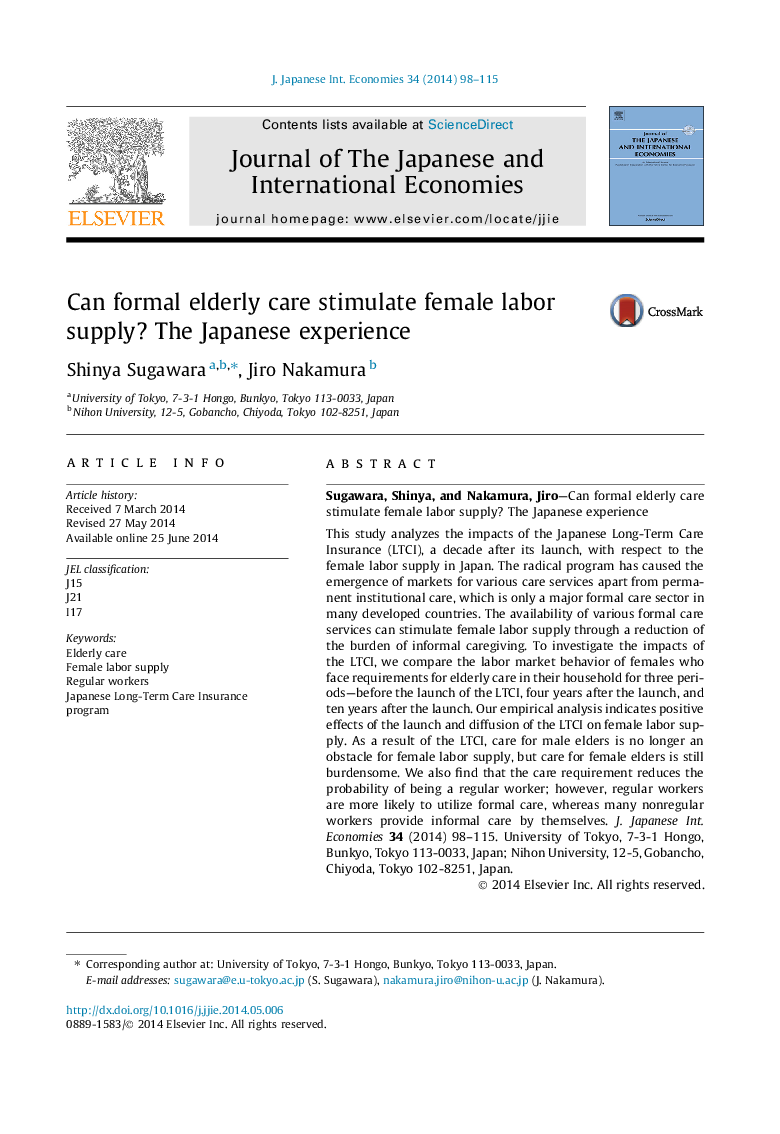| Article ID | Journal | Published Year | Pages | File Type |
|---|---|---|---|---|
| 964485 | Journal of the Japanese and International Economies | 2014 | 18 Pages |
•We analyze impacts of the Japanese Long-Term Care Insurance on the female labor supply.•The launch and diffusion of the LTCI have positive effects on female labor supply.•Care for female elders is still burdensome, but care for male elders is not.•Care requirement reduces the probability of being a regular worker.•Regular workers use formal care, but nonregular workers provide care by themselves.
This study analyzes the impacts of the Japanese Long-Term Care Insurance (LTCI), a decade after its launch, with respect to the female labor supply in Japan. The radical program has caused the emergence of markets for various care services apart from permanent institutional care, which is only a major formal care sector in many developed countries. The availability of various formal care services can stimulate female labor supply through a reduction of the burden of informal caregiving. To investigate the impacts of the LTCI, we compare the labor market behavior of females who face requirements for elderly care in their household for three periods—before the launch of the LTCI, four years after the launch, and ten years after the launch. Our empirical analysis indicates positive effects of the launch and diffusion of the LTCI on female labor supply. As a result of the LTCI, care for male elders is no longer an obstacle for female labor supply, but care for female elders is still burdensome. We also find that the care requirement reduces the probability of being a regular worker; however, regular workers are more likely to utilize formal care, whereas many nonregular workers provide informal care by themselves.
